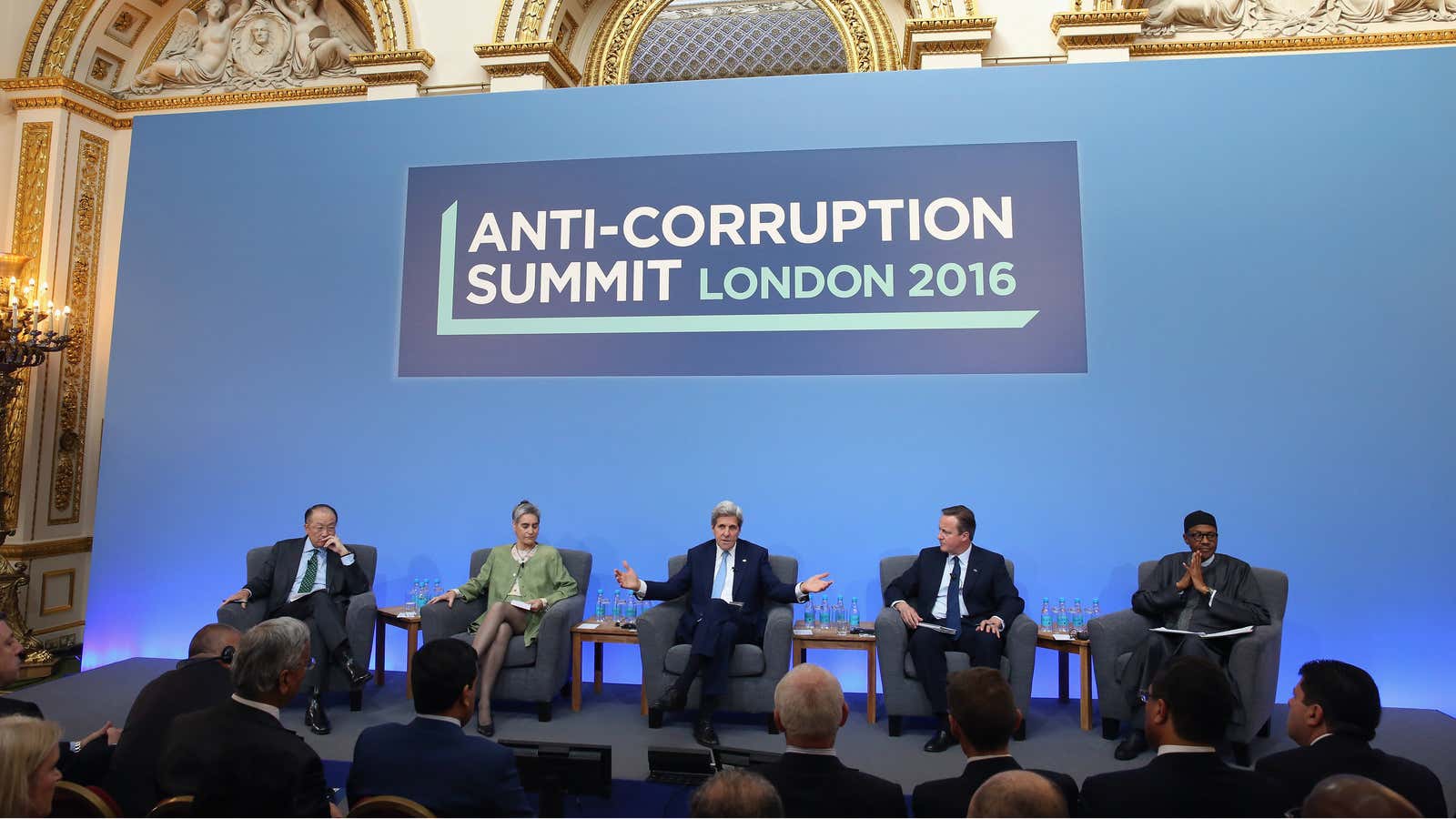Funds looted from Nigeria’s treasury have gone full cycle.
Days after Yemi Osinbajo, Nigeria’s acting president, signed a $23 billion budget, a presidential aide says the record deficit budget will be partly funded with loot recovered from the administration’s anti-corruption fight. Okoi Obono-Obla, a presidential aide on prosecution, told journalists that, subject to approval by the national assembly, ”about 20%” of the 2017 budget will be financed through recovered loot. If true, that suggests that the government has recovered up to $4.6 billion in looted funds.
Nigeria needs the extra funds as its economy has been mired in recession for over five quarters and with oil prices unlikely to rebound soon to the highs of 2014, there is no easy path to quick revenue growth for Africa’s largest oil producer.
The new budget, which has been long delayed partly due to the absence of president Buhari on sick leave, has a fiscal deficit of $7.5 billion which will be funded by by borrowing. According to Premium Times, it was unclear if the 20% was of the total budget or the self-financed part of the budget.
Since taking office in May 2015, beating corruption has formed a core of Buhari’s administration with officials from the previous government currently facing long-running cases for embezzlement of government money. Buhari’s anti-corruption campaign has also hit members of his own team. In April, the president suspended two high-profile appointees over corruption allegations. But with court cases and probes generally taking much longer to unravel, the government has changed tack over the past seven months.
In December, it introduced a whistle-blowing policy to allow Nigerians report corruption and fraud-related offenses. While cases also ended up in court, the anonymous tips were set up to help the Economic and Financial Crimes Commission (EFCC), Nigeria’s anti-graft agency, gather damning evidence much quicker. As an incentive, whistle-blowers can receive a cut of up to 5% if tips result in successful recovery of looted funds. So far, the strategy appears to be working as EFCC has made some high profile cash discoveries.
In April, thanks to a whistle-blower’s tip, EFCC turned up bundles of cash in dollar, pound sterling and naira currencies totaling $43.4 million in an empty apartment in Lagos’ upmarket Ikoyi neighborhood. Last week, a court ordered the final forfeiture of the money to the government. An earlier tip in February also saw the agency uncover a cash haul of $9.8 million from a former director at Nigeria’s state oil company.
At the time Lai Mohammed, Nigeria’s minister of information, said the EFCC had recovered over over $180 million thanks to the whistle-blowing policy. While recoveries due to the policy are still way short of the $4.6 billion mark, the EFCC has also recovered funds through plea bargain deals with looters to avoid trial and save “valuable court time and state resources.”
